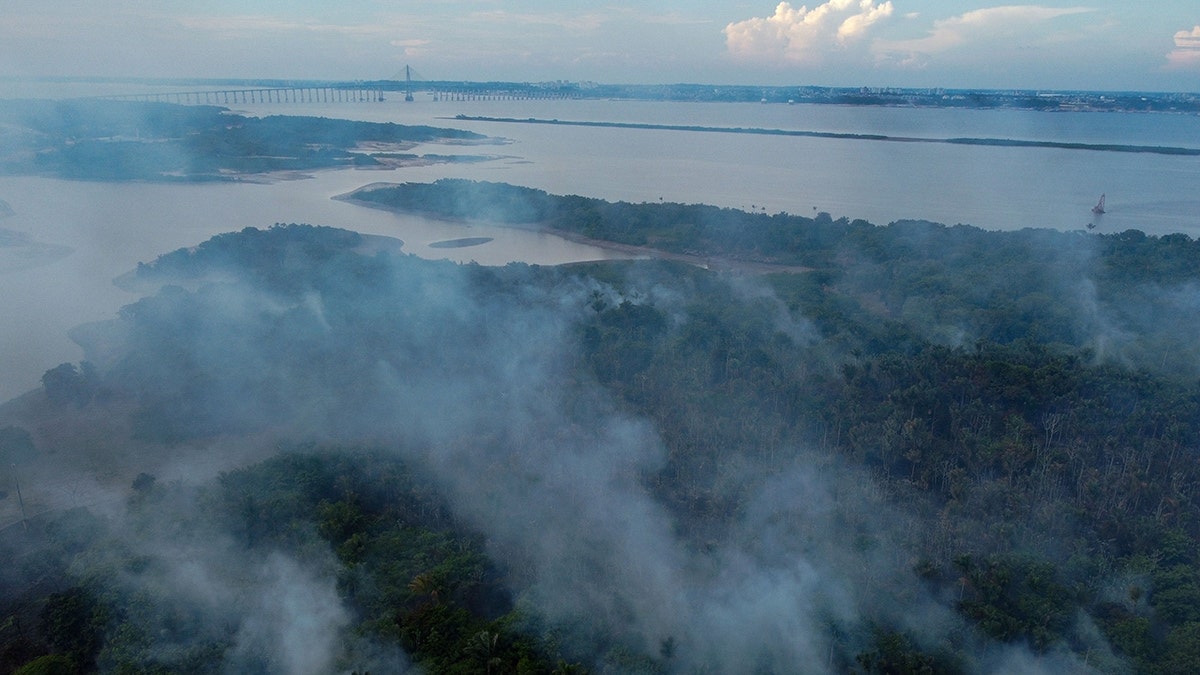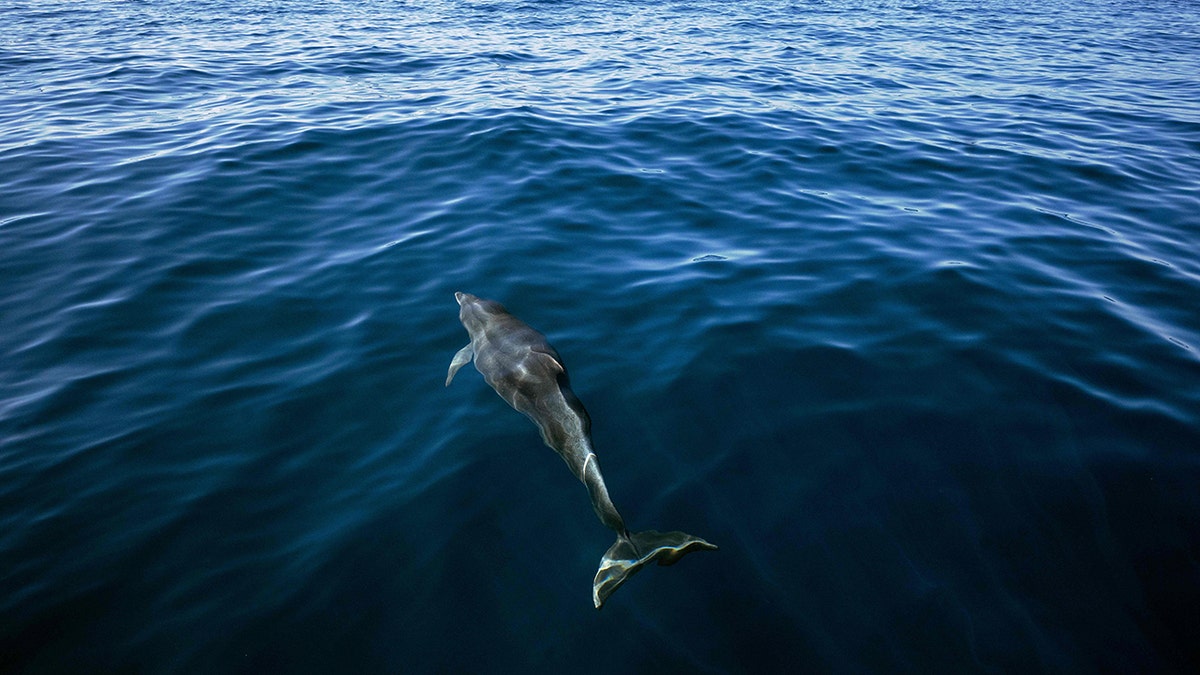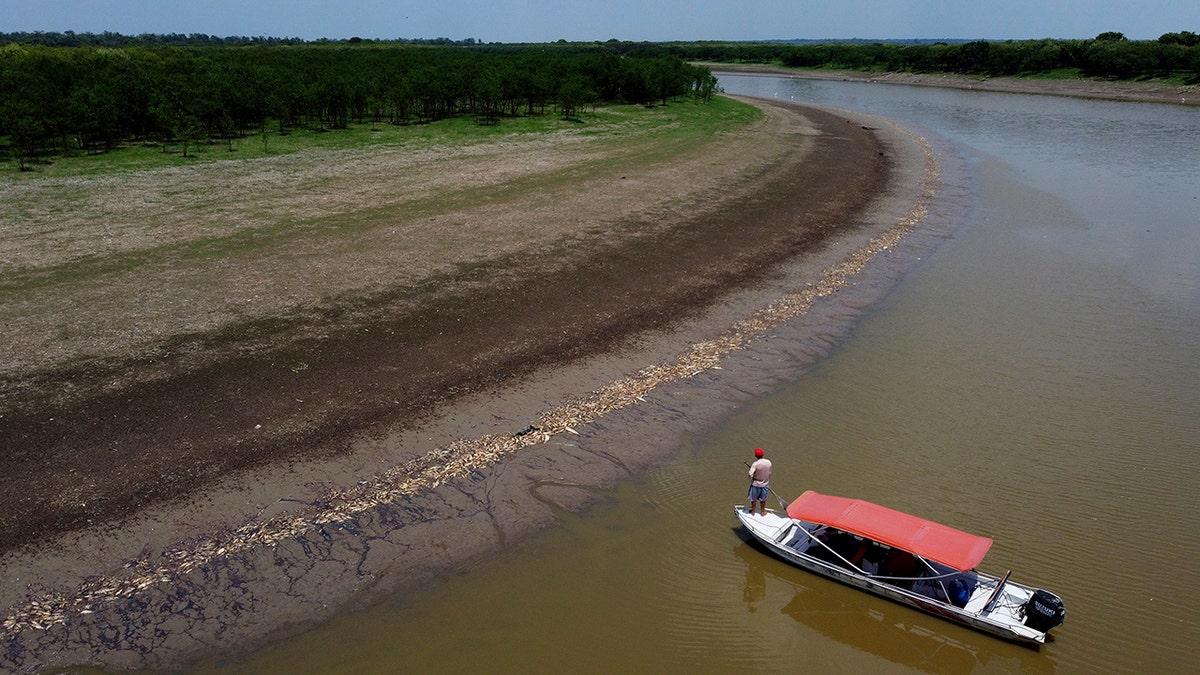Fox News Flash top headlines for October 3
Fox News Flash top headlines are here. Check out what's clicking on Foxnews.com.
More than 100 dolphins died in Brazil last week, and a local governor has declared a state of emergency as experts say additional deaths could be expected.
The Brazilian Amazon continues to grapple with a severe drought. Experts say the most likely cause of the deaths in the lakes were high water temperatures, as temperatures have exceeded 102 degrees Fahrenheit in the Tefe Lake region.
The Mamiraua Institute, a research group of Brazil’s Ministry of Science, Technology and Innovation, said additional dolphins were found Monday. Local media has reported thousands of fish have also died at Tefe Lake, which is key for mammals and fish in the area. Video provided by the institute showed dolphin carcasses beached on the lakeside.
"In one week we have already lost around 120 animals between the two of them, which could represent 5% to 10% of the population," said Miriam Marmontel, a researcher from the Mamiraua Institute.
4 DEAD, 30 INJURED IN BRAZIL AFTER METAL FACTORY EXPLODES

A fire in the Amazon rainforest in Iranduba, Amazonas, northern Brazil, on Sept. 23, 2023. The Amazonas is suffering a severe drought that is affecting navigation and the distribution of fuel and food to the interior. (Michael Dantas/AFP via Getty Images)
Water temperatures rose from 89 F on Friday to almost 100 F on Sunday, said Ayan Fleischmann, the geospatial coordinator at the Mamirauá Institute.
Amazonas Gov. Wilson Lima on Friday declared a state of emergency due to the drought as workers continue to recover carcasses of dolphins stemming back from last week.
WATCH: BIDEN FORGETS TO SHAKE HANDS WITH PRESIDENT OF BRAZIL IN LATEST AWKWARD GAFFE
The drought is not just impacting the region’s wildlife as humans have been unable to travel or deliver supplies to some isolated areas as the waterways are the main method of transportation.

Water temperatures rose from 89 F on Friday to almost 100 F on Sunday. Experts found two more dead dolphins on Monday. (Carl de Souza/AFP via Getty Images)
Nicson Marreira, mayor of Tefe, a city of 60,000 residents, said his government was impacted because of the dry rivers.
"Many communities are becoming isolated, without access to good quality water, without access to the river, which is their main means of transportation," Fleischmann said.

A fisherman navigates his boat near thousands of dead fish on the banks of Piranha Lake in the state of Amazonas, in Manacapuru, Brazil, Wednesday, Sept. 27, 2023. (AP Photo/Edmar Barros)
Teams of veterinarians and aquatic mammal experts are investigating the deaths, the Brazilian government’s Chico Mendes Institute for Biodiversity Conservation, which manages conservation areas, said last week.
CLICK HERE TO GET THE FOX NEWS APP
Fleischmann said investigators are still determining the cause of the dolphin deaths but that the high temperature remains the primary candidate.
The Associated Press contributed to this report.





















